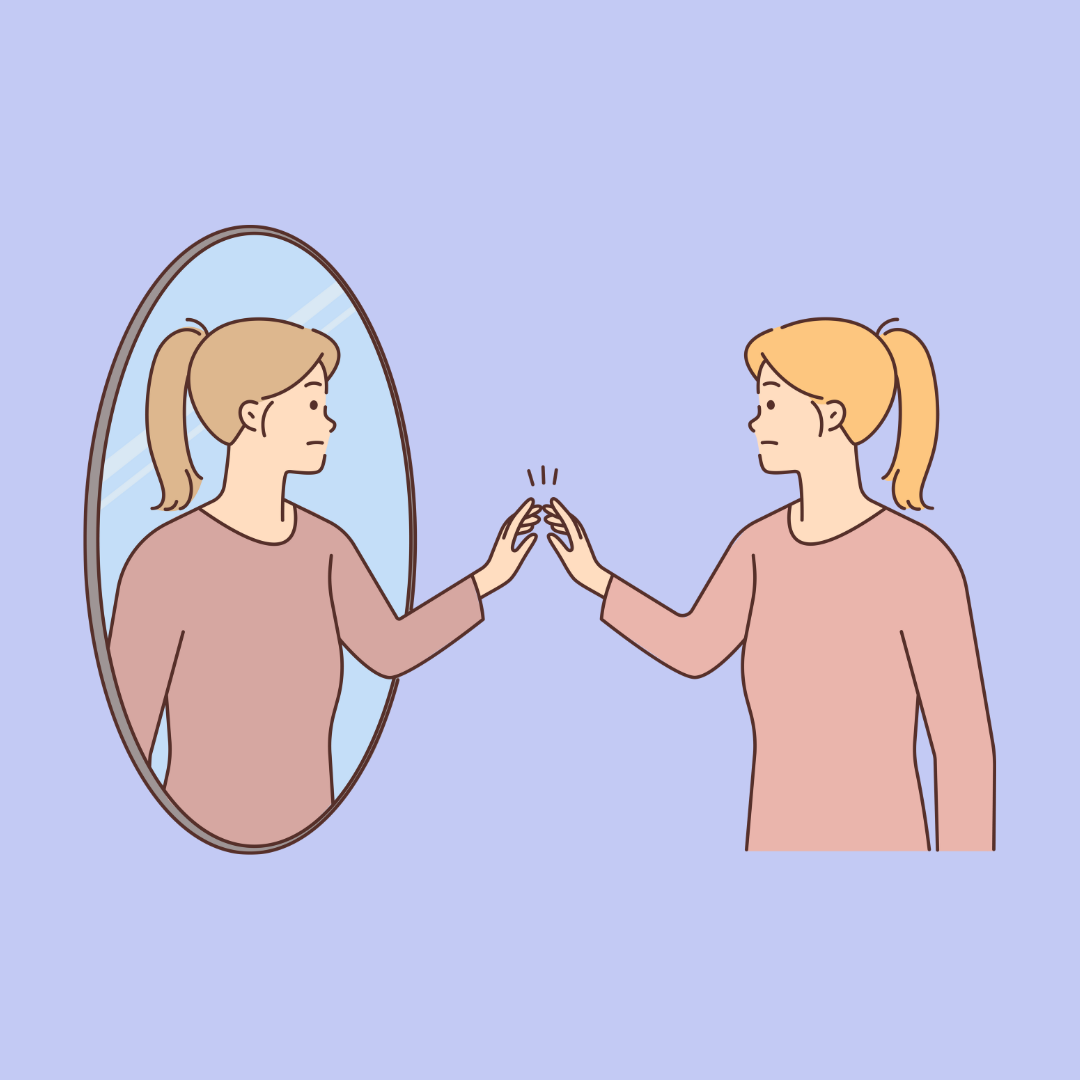
Body Dysmorphic Disorder (BDD)
Cognitive Behavioral Therapy (CBT) for BDD directly addresses the cycle of distorted body image thoughts and unhealthy behaviors. Here’s a breakdown of what treatment might involve:
2. Gradual Exposure
You’ll work with a therapist to identify situations that trigger negative thoughts about your appearance, starting with less anxiety-inducing scenarios and gradually facing more challenging ones. This could involve exposing yourself to mirrors or photos, or resisting the urge to seek reassurance from others about your appearance.
3. Response Prevention
The key to breaking the cycle of BDD is resisting the compulsive behaviors, such as excessive checking or seeking reassurance. Your therapist will guide you in facing these triggers while learning to sit with discomfort without engaging in these behaviors. It may feel difficult at first, but over time, the anxiety will lessen.
4. Learning Coping Mechanisms
CBT for BDD isn’t just about exposure. You’ll also gain practical tools for managing negative thoughts and feelings, such as mindfulness techniques, cognitive restructuring, and self-compassion practices.
5. Improving Self-Compassion
Through CBT, you’ll work on developing a kinder, more understanding attitude toward yourself. This includes challenging unrealistic beauty standards and learning to accept and appreciate your body as it is.
7. Our BDD Therapists are Here to Help
Don’t let Body Dysmorphic Disorder control your life. Take the first step toward a healthier mindset. We understand how BDD can impact your daily life. Our experienced therapists can help you manage symptoms and work towards a more positive self-image.
Schedule an appointment today and start feeling better.
Common Thoughts and Obsessions in (BDD)
- Excessive mirror checking
- Excessive grooming
- Avoidance of mirrors
- Camouflaging with makeup, clothing, hats
- Negative impact on daily functioning
- Positioning the body to hide flaws
- Avoidance of being in photos
- Researching plastic surgery
- Comparing appearance to others
- Asking others for reassurance about appearance
Compulsive Behaviors Associated with (BDD)
- Excessive mirror checking
- Avoidance of being in photos
- Avoidance of mirrors
- Camouflaging with makeup, clothing, hats
- Excessive grooming
- Positioning the body to hide flaws
- Researching plastic surgery
- Comparing appearance to others
- Asking others for reassurance about appearance
Body Dysmorphic Disorder (BDD) Treatment in Rockville Center, NY
If you struggle with Body Dysmorphic Disorder (BDD), you likely know that trying to convince you out of your concerns is unhelpful. Persuading you that your perceived flaws are imagined can actually worsen the disorder over time.
BDD therapists do not aim to argue about the specifics of one’s BDD concerns, such as if your nose is actually “hideous.” Rather, treatment for body dysmorphia aims to help individuals challenge their beliefs about:
- The importance of appearance to others
- The need to be perfect in order to be attractive
- The role of appearance in relationships and daily life
Therapy for BDD Includes CBT and ACT
As part of Body Dysmorphic Disorder treatment, you are also encouraged to abandon the rituals that get in the way of your life. These rituals are time-consuming and actually exacerbate distress about appearance concerns. Cognitive Behavioral Therapy (CBT) and Acceptance and Commitment Therapy (ACT) for BDD can help you identify your priorities and values and spend more time focusing on them.
Therapy for BDD incorporates mirror attention retraining to help you look at your appearance in a more objective and balanced way. This helps you stop avoiding mirrors or engaging in excessive mirror checking and eventually reduces distress.
These steps may sound overwhelming. At Anxiety Care NY, we are here to be your partner in overcoming BDD. You can get better!
Body Dysmorphic Disorder Treatment
We are here to be your partner in overcoming BDD. You can get better! Treatment in Rockville Centre and online across NY & NJ. Contact us.

